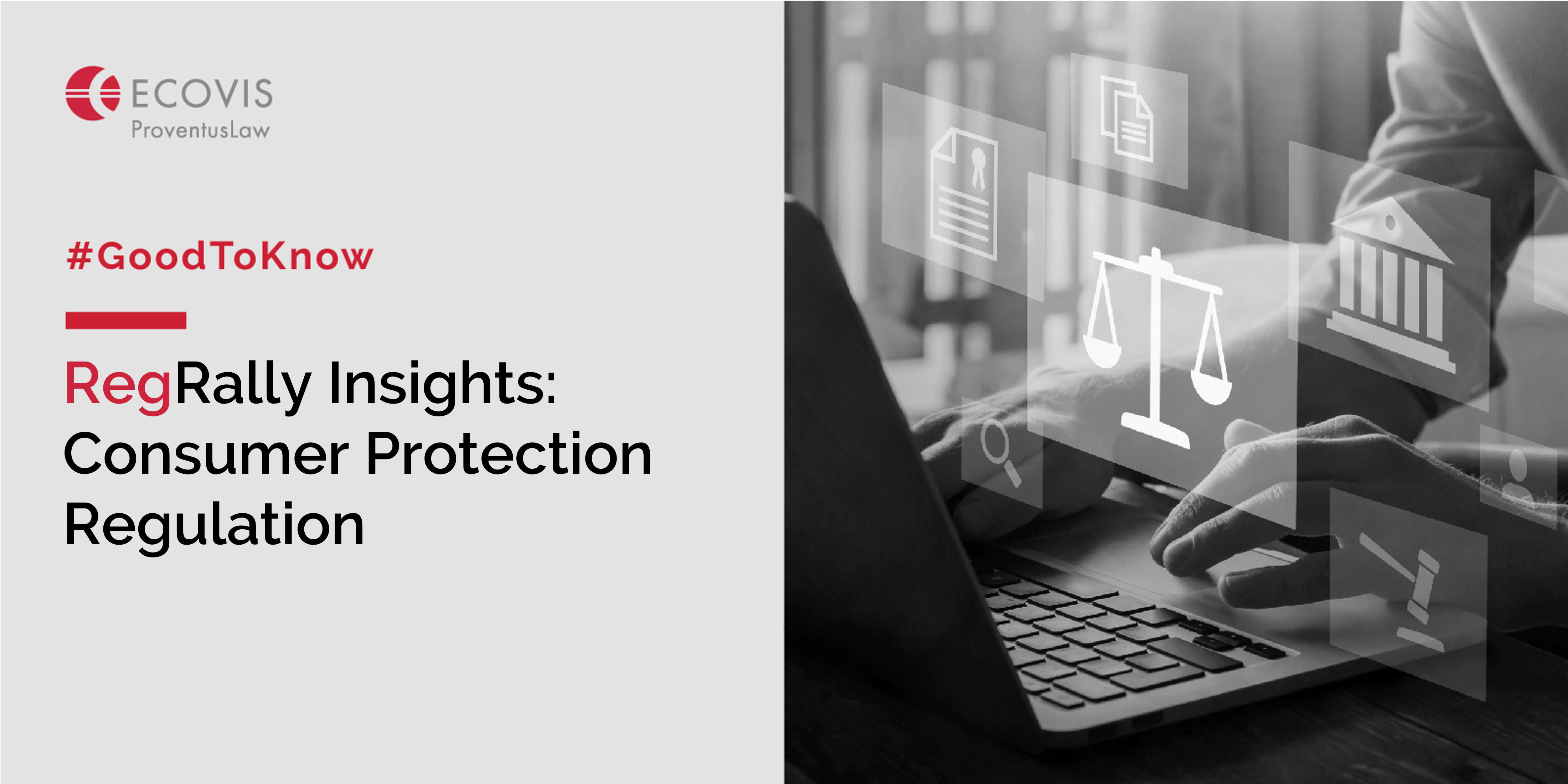Welcome to the November 2025 edition of RegRally Insights: Consumer Protection Regulation. This is the month’s briefing, spotlighting key regulatory moves shaping consumer protection across the EU. We break down the latest developments, highlight persistent compliance gaps, and outline practical steps to help you stay ahead of evolving regulatory standards.
This month brings important developments for financial and crypto-asset markets, with regulators across Europe intensifying their focus on consumer protection, licensing readiness, and transparency.
From coordinated warnings on crypto-asset risks and the approaching MiCA licensing deadline, to new insights on greenwashing in sustainable finance and a landmark CJEU ruling strengthening consumer rights, these updates highlight the growing regulatory expectations facing market participants. Below is a concise overview of the key decisions and supervisory actions shaping the landscape.
Bank of Lithuania and EU Supervisory Authorities Warn Consumers About Crypto-Asset Risks
On 13 October 2025, the Bank of Lithuania and the European Supervisory Authorities issued a joint warning, highlighting the risks associated with crypto-assets and the limited consumer protection available in this sector. While acknowledging the role of crypto-assets in fostering innovation and competition, the authorities stressed that many products and services remain outside the scope of the MiCA Regulation. MiCA covers electronic-money tokens (EMTs) and asset-referenced tokens (ARTs), but unique NFTs and various other crypto-assets remain unregulated, leaving consumers potentially exposed.
The statement advises users to exercise caution, especially when dealing with non-EU or unlicensed providers, which may pose significant financial and operational risks.
Key recommendations for consumers and market participants:
- Verify whether crypto-asset service providers are licensed in the EU and fall under MiCA.
- Be cautious when engaging with non-EU or unregulated platforms.
- Assess the security and reliability of custody arrangements, ensuring clear segregation of client assets.
Additional suggestions for businesses:
- Verify the licensing and MiCA status of all partner or third-party crypto-asset service providers before cooperation or referral.
- Strengthen due diligence and client-risk assessments for customers interacting with unregulated or third-country platforms.
- Ensure custody structures offer transparency and robust client-asset protection.
Bank of Lithuania Urges Crypto Service Providers to Finalise Licensing and Inform Clients
With the transition period ending on 31 December 2025, the Bank of Lithuania reminds virtual currency exchanges and wallet operators that only licensed entities will be permitted to provide crypto-asset services. Both service providers and clients are urged to prepare for the new regulatory framework.
Nearly 50 companies have applied for authorisation since early 2025, yet only one licence has been granted to date. Many applications were found to be insufficiently prepared and failed to meet minimum requirements. The Bank continues reviewing pending submissions and aims to complete assessments by year-end.
Providers that do not intend to seek a licence must promptly notify clients and give clear instructions on how to withdraw assets. After December 31, unlicensed activity may result in website blocking and public listing as an illegal operator.
The Bank also advises investors to verify whether their service providers are licensed or undergoing authorisation, warning that reliance on unlicensed platforms may carry significant financial and legal risks. Financial institutions should strengthen due diligence on crypto-related counterparties and ensure cooperation only with authorised providers.
Greenwashing in Sustainable Finance Undermines Consumer Trust Across Europe
A new BEUC survey of over 10,000 consumers in 11 EU countries reveals that misleading sustainability claims and poor product quality are deterring people from investing in sustainable finance. Although interest remains strong—27% have already invested sustainably, and 41% would consider doing so—trust in this approach continues to lag.
More than half of respondents (55%) reported that they had never been offered sustainable products. Those willing to invest want to see real-world impact (86%) and support for the transition of high-emission sectors (71%). Yet misleading or unverifiable green claims deter 34% of consumers. Many also hold incorrect assumptions: 52% believe sustainable products are subject to strict legal standards, and 49% think supervisors verify them—neither is currently true.
BEUC warns that this misinformation and lack of clear product criteria erode consumer confidence and threaten the EU’s sustainable finance goals. The organisation calls for enforceable minimum standards that exclude harmful activities and make sustainable investments accessible to retail investors. Financial regulators and institutions should tighten compliance, ensure transparent disclosures, and substantiate all sustainability claims with verifiable data ahead of the upcoming SFDR review.
Consumer Protection Rights Travel With the Assigned Claim, CJEU Confirms
The CJEU has clarified that consumer protection rights do not disappear when a consumer assigns their claim to a third party — even if that party is a business.
In the case at hand, a company acquired consumer claims arising from a contract with a bank. The bank argued that a non-consumer could not enforce rights based on consumer law. The Court rejected this view.
Key points from the ruling:
- Assignment of consumer claims is permitted. Article 22(2) of Directive 2008/48 does not prevent national laws from allowing consumers to assign their claims — including claims based on infringements of consumer credit rights — to non-consumers.
- Assignments help consumers enforce their rights. The Court noted that an assignment may enable consumers to avoid costs and burdens that would otherwise discourage them from pursuing claims directly.
- Consumer protections remain intact after assignment. When a legal entity assumes a consumer’s claim, the claim retains its original nature and continues to be protected, even if the dispute subsequently involves two businesses.
- No ex officio unfair-terms review required in B2B litigation. Where a case is between two traders (e.g., the assignee and the original seller/bank), the court is not necessary to examine unfair terms on its own motion.
In short, consumers are free to assign their claims, including to profit-seeking entities, and the bank cannot rely on Article 22(2) to challenge the validity of such assignments.


 Newsletter Subscription
Newsletter Subscription